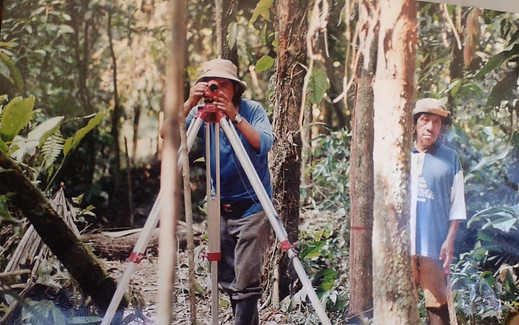Importance of CRM in Ecuador

Manteño-Huancavilca culture chair.
The archaeological heritage is a common good for every human society; therefore, it is a duty for all countries to ensure the availability of adequate funds for their protection. It is a widely accepted fact that knowledge and understanding of the origins and development of human societies are of fundamental importance to all of humanity, as they serve to identify their cultural and social roots. The archaeological heritage constitutes the essential testimony to the human activities of the past. Its protection and proper management are essential to allow archaeologists and other scientists to study and interpret it on behalf of present and future generations, and for the benefit of them. The central importance of cultural heritage for social and economic progress around the globe is increasingly recognised as a vital element in creating a different kind of world and as an essential building block in the social and economic well-being of people. Indeed, archaeology and its allied cultural-historical disciplines are more important than its practitioners care to admit (Wainwright 2000). CRM allows local people to be involved and to understand about their ancestors. In addition, this allows empowerment local people about their cultural heritage and therefore they manage territorial development that improves quality life.
The CRM is the only way to preserve and conserve the cultural heritage that our ancestors have left us and to value it for future generations. For Andean communities, heritage and culture represent fundamental elements in their daily lives. In this sense, a successful management of the heritage can generate an integral development of the cultural heritage. The management of the archaeological heritage represents a pending debt for Ecuador. Despite having several institutions that are responsible for the protection of the archaeological heritage, clear policies and concrete actions are still needed to stop the destruction and commercialization of the archaeological heritage.
La Importancia de la Gestión del Patrimonio Arqueológico en Ecuador
La Importancia de la Gestión del Patrimonio Arqueológico en Ecuador
El patrimonio arqueológico es un bien común para toda sociedad humana; por lo tanto, es un deber para todos los países garantizar la disponibilidad de fondos adecuados para su protección. Es un hecho ampliamente aceptado que el conocimiento y la comprensión de los orígenes y el desarrollo de las sociedades humanas son de importancia fundamental para toda la humanidad, ya que sirven para identificar sus raíces culturales y sociales. El patrimonio arqueológico constituye el testimonio esencial de las actividades humanas del pasado. Su protección y gestión adecuada son esenciales para que los arqueólogos y otros científicos puedan estudiarla e interpretarla en nombre de las generaciones presentes y futuras, y para su beneficio.
Se reconoce cada vez más la importancia central del patrimonio cultural para el progreso social y económico en todo el mundo, como un elemento vital en la creación de un tipo diferente de mundo y como un elemento esencial en el bienestar social y económico de las personas. De hecho, la arqueología y sus disciplinas histórico-culturales aliadas son más importantes de lo que sus practicantes quieren admitir (Wainwright 2000). La Gestión del Patrimonio Arqueológico (GPA) permite a las personas locales involucrarse y entender acerca de sus antepasados y de su identidad cultural. En consecuencia esto genera un empoderamiento de la población local sobre su patrimonio cultural y, por lo tanto, gestiona un desarrollo territorial que mejora la calidad de vida de las personas.
GPA es la única forma de preservar y conservar el patrimonio cultural que nuestros antepasados nos han dejado y de valorarlo para las generaciones futuras. Para las comunidades andinas, el patrimonio y la cultura representan elementos fundamentales en su vida cotidiana. En este sentido, una gestión exitosa del patrimonio puede generar un desarrollo integral del patrimonio cultural. La gestión del patrimonio arqueológico representa una deuda pendiente para Ecuador. A pesar de tener varias instituciones responsables de la protección del patrimonio arqueológico, todavía se necesitan políticas claras y acciones concretas para detener la destrucción y comercialización del patrimonio arqueológico.

Archaeological prospecting in Amazon region.
Iconic photo, few times have been seen archaeologists with the Huaoranis indigenous group.
Imamantatak Gestion del Patrimonio Arqueológico achka allimi kan Ecuador mama llaktapak
Imamantatak Gestion del Patrimonio Arqueológico achka allimi kan Ecuador mama llaktapak. Maypimi ñawpa kawsakuna imalla tukushkatami kay punllakuna rikuchin. Wasikunatapash wakanatapash. Kaykunata alli alli wakichishpaka ñawpakmanmi ñukanchik llaktakunata rinka.



